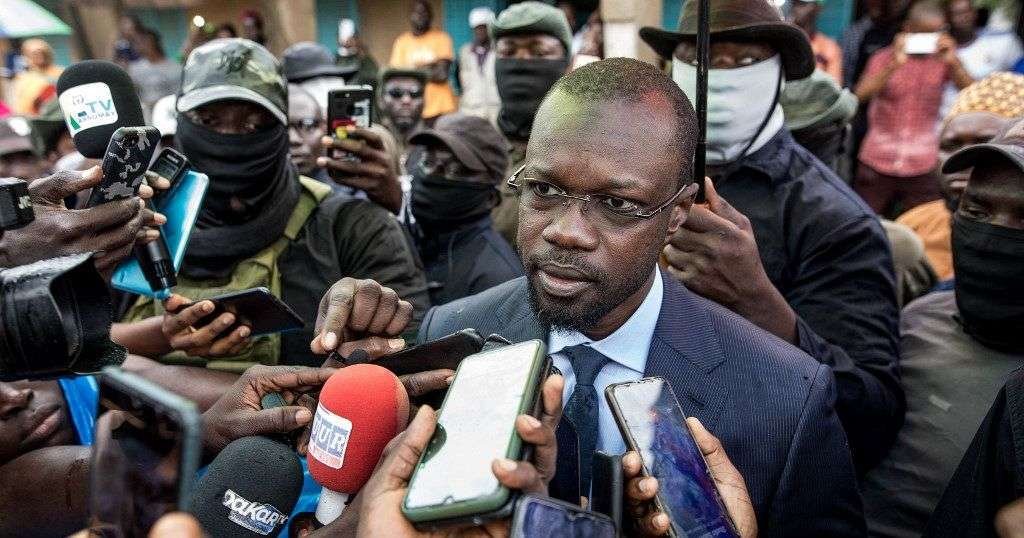Dakar, Senegal – (African Boulevard News) – Senegalese opposition leader Ousmane Sonko, who has been detained since the end of July on multiple charges, including inciting insurrection, has announced his decision to resume his hunger strike. This move comes as a response to what he perceives as a lack of progress in his case and a failure to address his demands for justice.
Sonko, a prominent political figure and the leader of the Pastef party, had previously embarked on a hunger strike in September, demanding a fair trial and an end to what he claims is government persecution. However, he temporarily suspended the strike after 11 days following assurances from the authorities that his concerns would be addressed.
In a statement released on Tuesday, Sonko declared, “I have decided to resume my hunger strike as a last resort to draw attention to the injustice I am facing. The charges against me are politically motivated, and I have no faith in the impartiality of the judicial system.”
The opposition leader’s hunger strike has drawn widespread attention both nationally and internationally, with many expressing concern for his health and well-being. Human rights organizations have called for his immediate release and for the government to ensure a fair trial.
Sonko’s detention and subsequent hunger strike have added to the political tensions in Senegal, where protests against President Macky Sall’s administration have grown in recent months. The protests initially erupted after Sonko was accused of rape, charges he denies and claims are part of a plot to silence him.
His supporters argue that his arrest and prolonged detention are politically motivated, aimed at neutralizing a key opponent ahead of the 2024 presidential elections. Sonko’s popularity has been growing among the youth, who are frustrated with high unemployment rates and government corruption.
As the hunger strike resumes, concerns about Sonko’s health continue to mount. Medical professionals have warned of the potentially severe consequences of a prolonged hunger strike, highlighting the need for immediate action to address the political and legal situation.
The government has yet to comment on Sonko’s decision to resume his hunger strike. However, it is expected that his latest action will further intensify the calls for his release and put pressure on the authorities to address the concerns raised by both national and international stakeholders.
In this ongoing saga, Sonko’s hunger strike represents a symbolic act of resistance against what he perceives as a political system plagued by corruption and injustice. As the opposition leader’s health hangs in the balance, the eyes of the nation and the international community remain fixed on Senegal, waiting to see how this unfolding drama will unfold.

